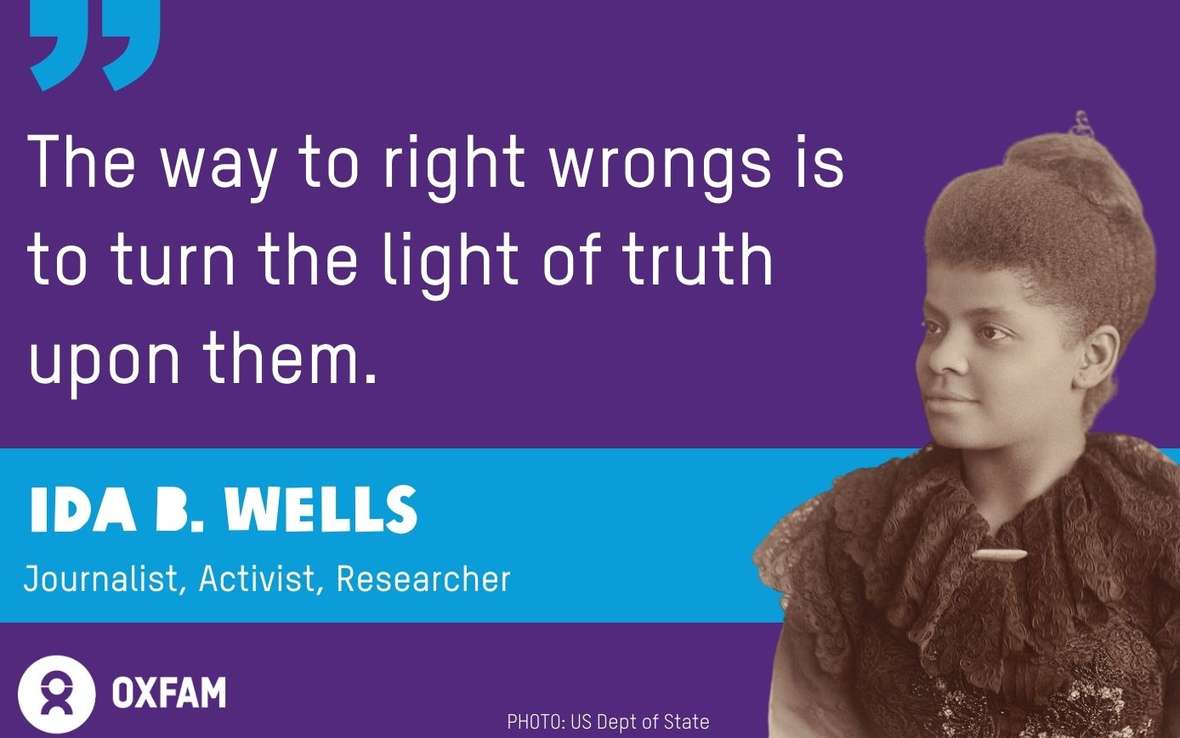A look at Black women who have transformed the world through their pursuit of political power and activism
Black women have a long history of fighting for justice and equity as organizers and activists. This Black History Month, we’re educating ourselves about the contributions Black women leaders have made to society. Join us in recognizing these fearless women who have been at the forefront of creating necessary change in our history.

Coretta Scott King
Civil Rights Leader, Author
Coretta Scott King was a civil rights leader, creating her own legacy in the movement to end injustice. Born in Alabama, she met Dr. Martin Luther King, Jr. while they were both university students in Boston. They married in 1953 and had four children. While raising the kids, she became an activist in her own right, sharing her husband’s work and carrying the message of nonviolence, walking alongside him in marches.
A convener, she joined the Women’s Strike for Peace to support a ban on nuclear testing and helped found dozens of organizations and coalition spaces, including the Black Leadership Forum, The National Black Coalition for Voter Participation, and the Black Leadership Roundtable.
After Dr. Martin Luther King Jr.’s death in 1968, King founded the Martin Luther King Jr. Memorial Center as a nonprofit to focus on advancing her husband legacy. She was also instrumental in establishing a federal holiday in honor of her husband.
King received honorary doctorates from over 60 colleges and universities and authored two books. She was the first woman to lay in honor in the rotunda of the Georgia capitol, with thousands of people, heads of states, and presidents attending to pay their respects.

Wangari Maathai
Kenyan social, environmental, and political activist; Nobel Prize Laureate
Born in Nyeri, Kenya, in 1940, Wangari Maathai long fought traditional gender roles within Kenyan culture, propagating the idea that village women could both improve the environment and slow down the process of deforestation by planting trees. Maathai founded the Green Belt Movement, an organization that has planted over 50 million trees to date. In 2004, she became the first Black African woman to win the Nobel Prize. Her movement grew over the years, starting similar environmental initiatives across Africa, including Tanzania, Ethiopia, and Zimbabwe.
Wangari was the first woman in East and Central Africa to earn a doctorate degree and an influential advocate for human rights, AIDS prevention, and women’s issues, regularly representing at the UN General Assembly. In 2002 she was elected to Kenya’s National Assembly with 98 percent of the vote. She remained an activist until her death in 2011.
Along with her political activism, she was an accomplished writer. Her books include: The Green Belt Movement: Sharing the Approach and the Experience, Unbowed, and The Challenge for Africa.

Ida B. Wells
Journalist, activist, researcher
Ida B. Wells was one of the most powerful voices in the first anti-lynching campaign in the US and an influential champion of intersectional feminism long before the concept had been coined. The civil rights pioneer, who had been into slavery and orphaned as a teenager, went on to cofound the NAACP and co-own the Memphis Free Speech.
In her early years, Wells was outspoken about lynching in the newspaper, which led to threats from white-owned businesses. After a mob invaded the Memphis Free Speech office and destroyed the building, she moved to New York and made a name for herself as a “journalist in exile.”
Later, Wells moved to Chicago and continued her work to uncover the truths of lynching in America. She participated in a delegation to President McKinley seeking justice for the lynching of a Black postman in South Carolina. While in Chicago, she met her husband and had four children. Wells was also a powerful voice in women’s suffrage, starting the Alpha Suffrage League and calling out the exclusion of Black women within the suffragist movement. In 1930, Wells ran for an Illinois State Senate seat, becoming one of the first Black women to run for public office. Though she lost, Wells opened the door for future generations of Black women to serve in public leadership positions.
You can read her words in the Crusade for Justice: The Autobiography of Ida B. Wells, The Red Record: Tabulated Statistics and Alleged Causes of Lynchings in the United States 1892–1893–1894.

Ella Baker
Civil and human rights activist
A behind-the-scenes organizer, Ella Baker was a major force in shaping the Black Freedom Movement in America. Graduating valedictorian from Raleigh’s Shaw University in 1927, Baker fought for civil rights and human rights and worked alongside some of the most noted civil rights leaders of the 20thcentury, including Martin Luther King, Jr., and W.E.B. DuBois. She played pivotal roles in the NAACP, the Southern Christian Leadership Conference, and the Student Nonviolent Organizing Committee. Baker is remembered for dedicating her life to seeking justice for all people.
Baker is remembered for dedicating her life to seeking justice for all people. In her book, Ella Baker & the Black Freedom Movement-A Radical Democratic Vision, historian Barbara Ransby explained that what distinguished her from her peers was her advocacy for overhauling the socio-economic system—Baker understood that laws, structures, and institutions had to fundamentally change to correct injustice and oppression—and the only way to affect change was t oensure that the people who were most affected were involved in the process.
